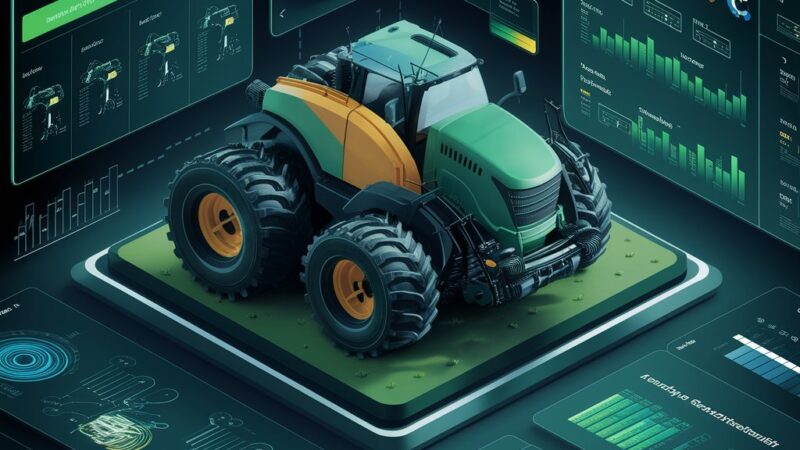The Role of Technology in Shaping Society’s Tomorrow

In the rapidly evolving landscape of the 21st century, technology has emerged as a driving force shaping every aspect of human existence.
From communication and transportation to healthcare and education, technological advancements continue to redefine the way we live, work, and interact with the world around us.
In this comprehensive blog, we’ll delve deep into the multifaceted role of technology in shaping society’s tomorrow, exploring its impacts, challenges, and potential for transformative change.
Technology and Connectivity
The advent of the internet and digital communication technologies has revolutionized the way people connect and interact globally.
Social media platforms, messaging apps, and video conferencing tools have bridged kalyan chart geographical barriers, enabling instantaneous communication and collaboration across borders.
The rise of the “internet of things” (IoT) has further expanded connectivity, linking everyday objects to the digital realm and creating smart, interconnected ecosystems.
As technology continues to advance, the world becomes increasingly interconnected, fostering a global community united by shared interests and experiences.
Technology and Education
Technology has transformed the field of education, revolutionizing traditional teaching methods and expanding access to learning opportunities.
Digital platforms, online courses, and educational apps have made knowledge more accessible and customizable, allowing learners to pursue their interests at their own pace and convenience.
Virtual reality (VR) and augmented reality (AR) technologies offer immersive learning experiences, bringing abstract concepts to life and enhancing student engagement.
Additionally, artificial intelligence (AI) algorithms can personalize learning experiences, adapting content to individual preferences and learning styles.
As technology continues to evolve, education becomes more inclusive, empowering learners of all ages and backgrounds to acquire knowledge and skills essential for success in the digital age.
Technology and Healthcare
In the realm of healthcare, technology has revolutionized diagnosis, treatment, and patient care, leading to significant improvements in health outcomes and quality of life.
Medical imaging technologies, such as MRI and CT scans, enable early detection of diseases and abnormalities, facilitating timely intervention and treatment.
Telemedicine platforms allow patients to consult healthcare providers remotely, overcoming geographical barriers and improving access to medical care, particularly in underserved areas.
Wearable devices and health monitoring apps empower individuals to track their health metrics in real-time, promoting preventive care and lifestyle modifications.
Moreover, advances in genetic sequencing and precision medicine hold the promise of personalized treatments tailored to an individual’s unique genetic makeup.
As technology continues to advance, healthcare becomes more personalized, accessible, and effective, ushering in a new era of precision medicine and patient-centered care.
Read Also: Cyber Security Strategies for Modern Threats
Technology and Workforce Automation
The integration of automation and robotics in the workforce has transformed industries, reshaping the nature of work and employment opportunities.
Automation technologies, such as robotic process automation (RPA) and machine learning algorithms, have automated routine tasks and processes, increasing efficiency and productivity in various sectors.
While automation has led to the displacement of certain jobs, it has also created new opportunities in emerging fields such as artificial intelligence, data science, and cybersecurity.
Moreover, automation has the potential to enhance workplace safety by delegating hazardous tasks to autonomous systems, reducing the risk of accidents and injuries.
However, the widespread adoption of automation raises concerns about job displacement and economic inequality, highlighting the need for policies and initiatives to ensure a smooth transition for displaced workers and promote equitable access to opportunities in the digital economy.
Technology and Environmental Sustainability
As the global population grows and natural resources become increasingly scarce, technology plays a critical role in promoting environmental sustainability and mitigating the impacts of climate change.
Renewable energy technologies, such as solar, wind, and hydroelectric power, offer clean alternatives to fossil fuels, reducing greenhouse gas emissions and dependence on finite resources.
Smart grid systems and energy-efficient technologies optimize energy consumption, minimizing waste and reducing environmental footprint.
Additionally, advances in agricultural technology, such as precision farming and vertical farming, enhance food production while minimizing resource usage and environmental impact.
Furthermore, IoT-enabled environmental monitoring systems track air and water quality, enabling timely interventions to prevent pollution and mitigate environmental hazards.
By harnessing the power of technology, society can transition to a more sustainable and resilient future, preserving natural ecosystems and ensuring a high quality of life for future generations.
Technology and Ethical Considerations
As technology becomes increasingly integrated into every aspect of society, it raises important ethical considerations regarding privacy, security, and equity.
The widespread collection and analysis of personal data raise concerns about privacy infringement and data misuse, highlighting the need for robust data protection regulations and ethical guidelines.
Moreover, the deployment of AI and automation technologies raises questions about algorithmic bias and discrimination, emphasizing the importance of fairness and transparency in algorithmic decision-making.
Additionally, the digital divide exacerbates social and economic inequalities, limiting access to technology and exacerbating disparities in education, healthcare, and economic opportunities.
As society grapples with these ethical challenges, it’s essential to prioritize ethical considerations and ensure that technological advancements benefit all members of society, regardless of their background or circumstances.
Conclusion:
Technology plays a transformative role in shaping society’s tomorrow, revolutionizing the way we live, work, and interact with the world around us.
From connectivity and education to healthcare and environmental sustainability, technological advancements offer unprecedented opportunities for progress and innovation.
However, as society embraces technology’s potential, it’s essential to address ethical considerations and ensure that technological advancements are guided by principles of fairness, transparency, and inclusivity.
By harnessing the power of technology responsibly, society can navigate the complexities of the digital age and build a brighter, more sustainable future for generations to come.
Read More: Mastering the Market: A Guide to the Best Trading Apps in India





